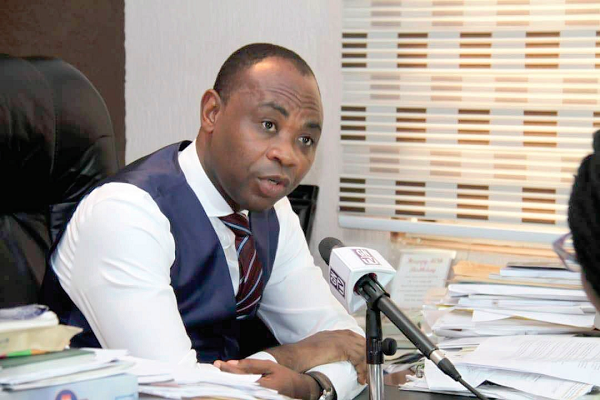
Legislate on free SHS programme
Ghana's 1992 Constitution has been crafted in such a way that Articles 25 and 28 specifically envisage a time where most Ghanaian children shall be educated. This concept is designed to make education progressively free for all children without any barriers.
Many governments, in their bid to achieve free education for all, have played various roles in ensuring that progressive education attains its full momentum. Consequently, various governments, through their policies and programmes, have specifically addressed one issue or the other in their attempt to give life to progressive education.
Since independence, the reality has been that no student has ever paid tuition fees in order to be taught in our public educational system. Successive governments have introduced innovative policies to deal with opportunity cost, many of such interventions were designed to address specific needs of children.
In the history of Ghana's educational system, various governments, including the current, have resorted to the use of a social development and protection approach in redefining basic education from kindergarten to the senior high school level.
But in the Free SHS programme, social development is more dominant in its implementation than the concept of protection.
Impact, programme
Indeed, as a country, we cannot deny the impact free SHS has had on Ghana's attempt to educate its children to a level where the child can be guaranteed of his or her safety in making decisions that concern the future.
Indeed, we can also say it is a fulfilment of the desire of the 1992 Constitution of Ghana. The right to education is a constitutional mandate, which is inherent and a major determinant in the enjoyment of other fundamental human rights.
As a result of free SHS, for the first time in the history of Ghana, the country has a comprehensive data on students in SHS that can be used for projection, proper planning and decision making.
Indeed, I am personally amazed by the support it has given to children in cocoa growing communities in the country. Child Rights International (CRI) currently works in 1,121 cocoa growing communities across almost all the cocoa districts.
Data collected on 42,000 households from August 2018 to December 2019 with a household membership of 178,514 revealed that 84 per cent of children of cocoa farmers who qualified to access secondary education had gained admission to SHS and had been placed.
The exponential rate in enrolment in cocoa growing communities are enormous to the extent that it cannot be compared to when cocoa farmers were under COCOBOD's scholarship programme. One of such examples in one of our many communities is a boy (name withheld) from a remote village without electricity who had aggregate 12.
With the support of the Ministry of Education (MoE), he was placed in Mfantsipim School and he is doing exploits. Another child (female) in Sekyere Adiembra (name withheld) is also currently at Sekondi College and excelling. I believe that many would not have gotten that opportunity but for this programme.
CRI with support from the Ghana Education Service (GES) has placed 17 children from typical rural communities in ‘Grade A’ schools and they are doing very well.
Issues
Despite the great attributes of the free SHS, there are challenges. These mainly stem from the introduction of the ‘double-track’ system and the lack of consistency and transparency in communicating well the policy to Ghanaians.
Though the policy was driven on the wheels of the New Patriotic Party’s (NPP) political manifesto, seasons and times must be observed in order to situate it within the public arena for public acceptance and legitimacy. This would be a perfect way to ensure the legacy of the policy and also halt any attempt by political hands to change it.
Since this cannot be guaranteed right now, it is necessary for the government to legalise the concept of free SHS, knowing the immense benefit of the programme.
As much as possible, to reduce the political effect in tossing such policies, the programme must be regulated by law in order to maintain consistency and prevent any future government from altering it to suit its own parochial interest or party agenda.
Legislating the free SHS would clearly define the funding source for continuous implementation of the policy. The current implementation and budget is purely based on exercise of discretion by the executives.
Once legislated, the policy would spell out a clear plan to improve infrastructure for the abolishment of the ‘double-track’ system.
Legislating on the policy would define the element of cost that is free and cost required of parents in order to ensure a holistic implementation of the policy.
Again, legislating the policy would clearly set performance indicators to be achieved by duty bearers against the social investment the State would make.
The writer is the Executive Director, Child Rights International.
E-mail:briahus@yahoo.com
